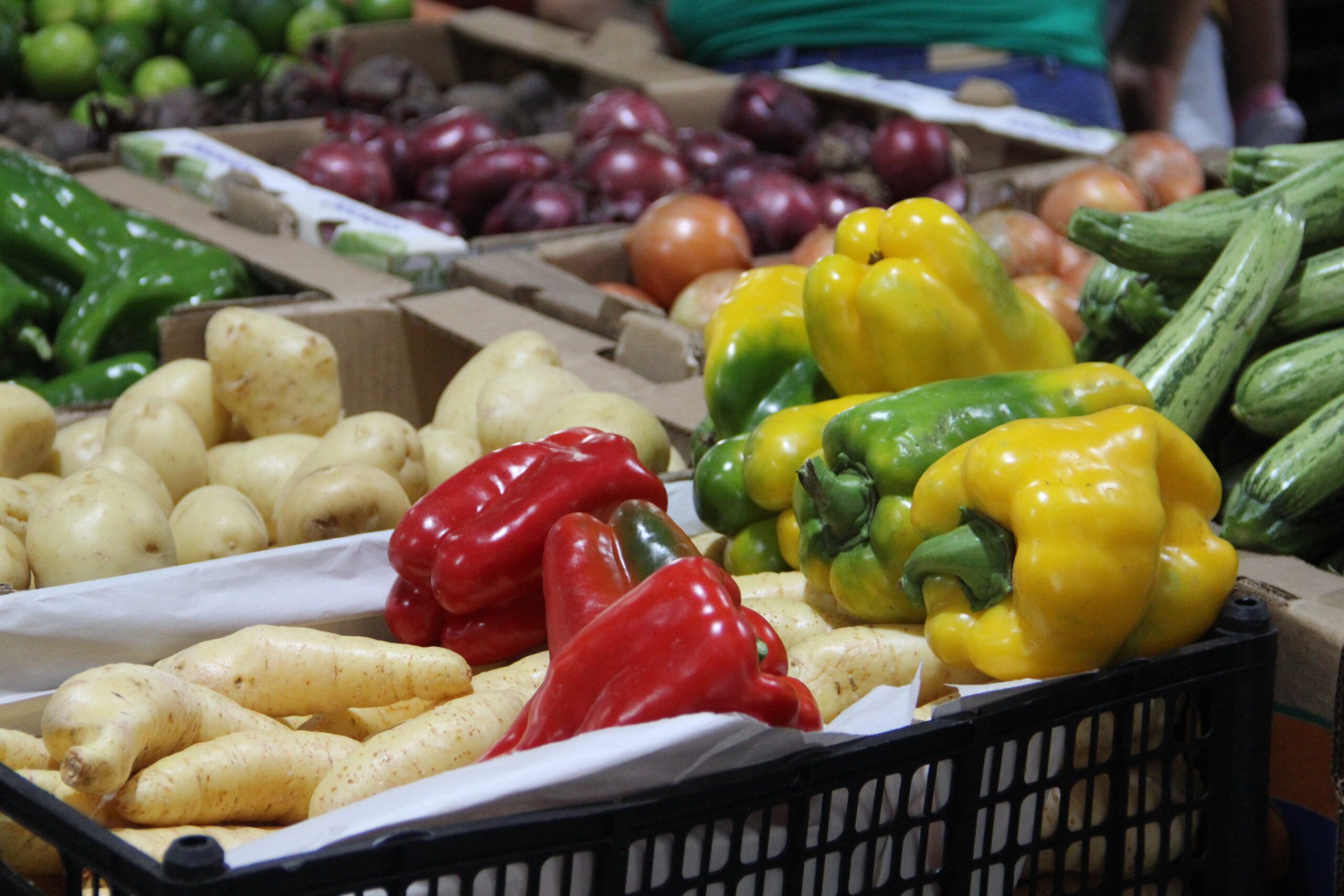
The return of the Food and Nutrition Security Council (CONSEA, in Portuguese) in 2023 brought the Food and Nutrition Security agenda back into national and international discussion. In December 2023, Brasilia welcomed representatives from all Brazilian states and international guests for one of the world’s biggest food and nutrition security events, held under the leadership of civil society: the 6th National Conference on Food and Nutrition Security (CNSAN, in Portuguese).
Part of the programme of the 6th CNSAN was the International Seminar, which had as its theme: Democratic Governance of Food Systems for the Observance of the Human Right to Adequate Nutrition. The aim of the seminar was to strengthen civil society’s transnational alliances in favour of the Human Right to Adequate Nutrition, including a commitment to strengthening spaces for the governance of food systems that are intersectoral, inclusive and democratic, at national, regional and global levels.
These issues are important for the health and nutrition of the Brazilian population and for many of the cooperating countries with which the World Food Programme (WFP) Centre of Excellence against Hunger in Brazil has partnerships. Through the Nurture the Future project, for example, the WFP Centre of Excellence project unit has been developing mechanisms with Colombia and Peru to mitigate the multiple burden of malnutrition instead of the consumption of real food that promotes health and prevents obesity and other health problems among schoolchildren. Regarding adequate food, the WFP Centre of Excellence, through the Beyond Cotton project, has stimulated the production of real food in a consortium to promote food and nutrition security and food sovereignty for populations in Africa.
“Based on the issues raised at the conference and the work carried out by the Centre, international cooperation will be important so that, together, we can share the challenges identified by the countries and, at the same time, exchange successful experiences in promoting the human right to adequate food at international level,” said Albaneide Peixinho, Project Coordinator at the WFP Centre of Excellence against Hunger Brazil.
International Seminar
The International Seminar programme included group discussions to analyse the current challenges facing food systems from the perspective of the human right to adequate food. At the same time, the imminence of the 20th anniversary of the Voluntary Guidelines in support of the progressive realisation of the right to adequate food in the context of national food security was highlighted as an important milestone for civil society to monitor how national governments have been tackling the issues of hunger and food insecurity.
The International Seminar was attended by representatives of civil society and governments from the Global South, Portuguese-speaking countries, and Latin America. The international participants accompanied the Conference, and the results of the Seminar will be included in the final report of the 6th National Conference on Food and Nutrition Security.
Fighting hunger and guaranteeing rights
The theme of the 6th Food and Nutrition Security conference, which followed the seminar, was “Eradicating hunger and guaranteeing rights with real food, democracy and equity”. In this political space, debates took place on the future of food and nutrition security in Brazil based on the active participation of different government entities, social movements, academia/universities, and agencies working in the field. Among the various themes addressed at the conference were social participation, the agro-ecological transition and the promotion of sustainable food systems that combat social inequalities. The event took place from 11 to 14 December, but the surveys produced will guide the next actions for food and nutrition in Brazil and around the world.
The Conference was organised with working groups and sub-themes: i) family and rural agriculture, supply and agroecology; ii) SISAN, CONSEA and fostering participation; iii) Protecting and Promoting Adequate and Healthy Food; iv) Land, territory, indigenous peoples, traditional peoples and communities and institutional racism; v) Demanding the human right to adequate food, training, research, monitoring and the international agenda.
WG 20 – International Agenda – was part of the v theme and highlighted five priority proposals for CONSEA’s food and nutrition security plan. The following actions were approved:
- To raise the human right to adequate food at United Nations summits and coalitions in which the Brazilian delegation participates;
- To draw up a National Strategy for International Cooperation on Food and Nutrition Security in the global south, with attention to Latin America, the Caribbean, Africa and the Community of Portuguese Language Countries (CPLP) countries;
- That the Global Alliance against Hunger and Poverty be guided by the realisation of the Human Right to Adequate Nutrition;
- Promote social participation in multilateral global and regional governance, seeking to advance the democratisation of decision-making structures on food systems in different dimensions;
- Request financial contributions by the Brazilian government, on a voluntary and regular basis, to the World Committee on Food Security (CFS), with a view to strengthening the capacities of the Civil Society and Indigenous Peoples Mechanism, including other social groups.
“The international agenda will continue to be important in the coming years to broaden discussions in the field of food and nutrition security, especially among the most vulnerable groups. The participation of social movements in this axis will be fundamental in highlighting the main problems from the point of view of groups that most often experience the main adversities in the field of food and nutrition,” said Albaneide Peixinho, WFP Project Coordinator in Brazil.




